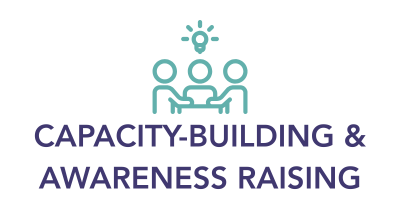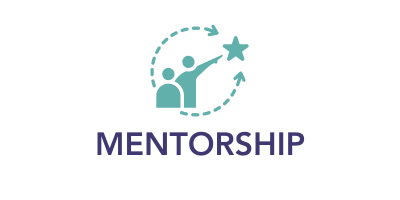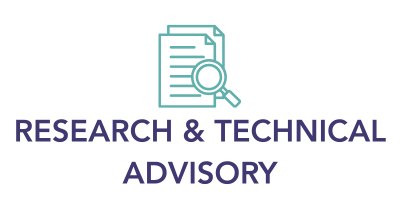Space4Women
Advancing gender equality in space science and technology

Latest News
- Phase 2 of the Landmark Study on Gender Equality in the Global Space Sector is out! We are excited to announce the launch of second research phase of the Space4Women Landmark Study on Gender Equality in the Global Space Sector focusing on Experiences of Women in the Global Space Sector and Gender Representation and Policy Uptake in the Private Space Sector. Access the full report.
- Read the latest UN News article on Space4Women. Read the article
- First webinar Space4Women x Cosmic Girls Foundation 'Demystifying space careers: not just astronauts'. UNOOSA partnered with the Cosmic Girls Foundation for the organization of a first global webinar on Monday 21 July 2025, uniting young women and girls worldwide to explore how they can shape the future of space - without needing to be astronauts. Read more.
- Space4Women: Celebrating Women and Girls in Science. On 11 February 2025, we celebrated the International Day of Women and Girls in Science by hosting a dedicated side event on the margins of the Scientific and Technical Subcommittee focusing on Space4Women: Celebrating Women and Girls in Science.
- Just back from the UN/Kenya 5 th Expert Meeting 2024. On 27-29 November 2024, the United Nations Office for Outer Space Affairs organized the 5th Space4Women Expert Meeting in collaboration with the Kenya Space Agency at the United Nations Office in Nairobi. Read more
- The Landmark Study on Gender Equality in the Space Sector is out! Based on the recommendations from the third Space4Women Expert Meeting organized by UNOOSA and the Republic of Korea in 2023, UNOOSA has launched a Landmark Study on Gender Equality in the Space Sector. The first phase of the Study provides information on gender representation in space agencies and other space-related public organizations and examines policies or interventions that advance gender equality. Access the full report.
- The Gender Mainstreaming Toolkit for the Space Sector is out! The Gender Mainstreaming Toolkit is the key outcome of the fourth Expert Meeting organized in 2023 by UNOOSA and the Canadian Space Agency (CSA) and addresses the underlying systemic gender inequalities at various levels and contexts. Access the Toolkit.
Background
Although women represent half the world's population, STEM fields, which are known for advancing human ingenuity and potential, are not fully representing what women and girls can offer.
There are several factors influencing low participation rates of women and girls in STEM education and the workforce. These include:
- Limited opportunities for career counselling, scholarships, and mentoring for women in STEM
- Lack of role models and limited understanding of the value of STEM fields
- Fewer female teachers in STEM subjects
- Inequality in the labour market and wage gaps
- Gender stereotypes
- Inadequate gender policies and limitative work environments
Gender inequality is a long-standing and widespread issue in education and careers in STEM fields within both developed and developing countries. The most recent findings of the Space4Women Landmark Study on Women Representation in the Global Space Sector indicate that women represent only 30% of public space sector organisations globally. Women's representation declines at higher levels, with women representing only 24% of managers, 21% of c-suite or executive roles, and 19% of board positions.
Despite the obvious benefits of diversity and inclusion on innovation, teamwork, work environment, and even financial performance, we still have a long way to go.
Space4Women
Space4Women is a programme of the United Nations Office for Outer Space Affairs (UNOOSA) to promote women's empowerment in space. To succeed in addressing the 17 Sustainable Development Goals and work towards the 2030 Agenda, we must ensure that the benefits of space reach women and girls and that women and girls play an active and equal role in space science, technology, innovation, and exploration.
Space4Women encourages women and girls to pursue Science, Technology, Engineering, and Mathematics (STEM) education and raises awareness about career opportunities and the importance of gender equality and empowerment in the space sector.
Through its activities over the years, the programme has built a strong network of dedicated women and men who have chosen to use their expertise to find solutions that increase women's participation in the space sector.
Women's empowerment is a precondition for the successful achievement of the 2030 Agenda for Sustainable Development and its 17 Sustainable Development Goals (SDGs). In particular, Space4Women addresses SDG 4: Quality Education and SDG 5: Gender Equality. Space4Women supports the Committee on the Peaceful Uses of Outer Space thematic priority 7 (TP7) "capacity-building for the twenty-first century" for the implementation of UNISPACE+50, with a special focus on women' empowerment in developing countries.
Our Approach
As the gateway to space within the United Nations, UNOOSA works to bring the benefits of space science and technology to everyone, everywhere. Space4Women strengthens the awareness, capacity, and skills of individuals and institutions to promote gender equality and women's empowerment in STEM fields with a special focus on the space sector.
Space4Women aims to:
- Communicating the opportunities of STEM education, and facilitating access to space education and careers.
- Providing policy-relevant advice, knowledge management, and evidence-based awareness raising, research and data to institutions and governments on "Space for Women" and "Women for Space."
- Facilitating capacity-building and training of individuals on access to and use of space technology to train, generate skills, and foster knowledge.
- Provide a mentoring platform for advocacy and to build the capacities and confidence of the women space leaders of tomorrow.
- Empowering young women and girls to be both the beneficiary of, and an active and integral contributor to space solutions.
Areas of work

The Space4Women programme contributes to the implementation of the following Sustainable Development Goals:
Get involved
Member States and any interested party may provide resources to implement the overall programme or tailored and targeted support to a specific area of work. Activities may be developed and tailored according to the specific needs of beneficiaries. If you are interested in building skills, shaping policies and tools, and connecting women in space to reach gender equality in space, contact us at space4women@un.org.
Register to our
mailing list to receive the latest updates on our activities
Register
Space expands; women raise.






